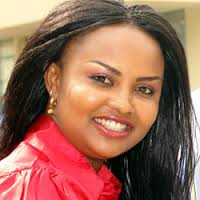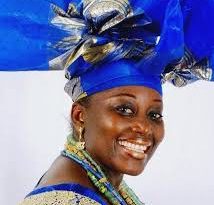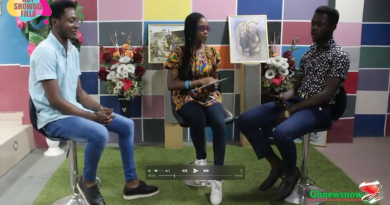Funding For The Creative Arts And Cultural Heritage
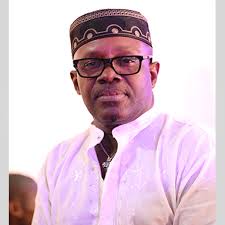
Bessa Simons an ace keyboardist and onetime member of Osibisa the greatest band ever to come out of Ghana speaks fondly about the support offered by the Arts Council of England to artistes and groups for their projects. For him that is one of the main requirements for the development of the creative industries in Ghana.
In the UK, artistes and workers in the creative arts have an opportunity to present proposals for grants from the arts councils and these grants enable groups and individuals to execute projects which wouldn’t have seen the light of day without the funding support. Some projects that qualify for such support include projects in which the creation of an artwork is central, projects that draw upon artists’ creativity and problem-solving abilities, projects through which the making of art can strengthen a community, draw attention to an important issue, or engage audiences in new ways. Other projects that attract funding include projects that challenge artistic imagination and organizational thinking as well as projects that designate at least two-thirds of the grant funds to the principal artists and their direct expenses for creating the work.
It’s therefore gratifying to note that the Ghana Cultural Forum in collaboration with the Ministry of Tourism, Culture and Creative Arts is calling for proposals from member organizations of the Forum as well as individuals who belong to the organizations or are members of the Forum to submit proposals for consideration.
STATUS QUO
In all there are ten domains in the creative arts in Ghana who stand to benefit from any scheme to support the creative arts. These are Cultural Sites – Archeological Sites, Museums, Libraries etc.; Visual Arts – Paintings, Sculptures, Photography, Antiques; Publishing and Printed Media – Books, Press and other publications; Design – Interior, Graphic, Fashion, Jewelry and toys; Creative Services – Architectural, Advertising, Cultural and recreational, Creative research and development, digital and other related creative services; New Media -software, video games, digitalized creative content; Audio Visuals – Film, Television, Radio and other broadcasting; Performing Arts – Live music, theatre, dance, opera, circus, puppetry etc. and Traditional Cultural expressions – Arts and crafts, festivals and celebrations.
A statement in the Creative Sector Medium-Term Development Plan 2012-2013 notes that “according to UNCTAD, trade in cultural goods and services world-wide was valued at $2.2 trillion in 2000 and continues to grow at 5% annually. The Government of Ghana recognizes the potential that the Creative Industries have, to shape and reinforce Ghana’s economic growth. As a result it has become government policy to organize the sector in a more strategic manner so that the sector will be able to deliver services and contribute to the larger good of the economy. This is being facilitated with the development and implementation of a Creative Industries Sector Medium-Term Development Plan under the Ghana Shared Growth and Development Agenda (2010-2013).”
Prior to this, former President J.A. Kuffour had established the Cultural Initiatives Support Programme (C.I.S.P) with funding from the European Union in 2008. In the words of the Programme Coordinator of the C.I.S.P, Kwasi Gyan-Apenteng, “the programme was to create work and wealth in order to fight poverty…..to provide assistance to individuals and organizations working in the cultural sector to realize their objectives and initiatives…”
One can daresay however that not much was heard of CISP apart from some training programmes organized for reporters and some industry practitioners. The closest thing to any form of institutional support for the creative arts since then has been the GHC 2m allocated to the Musicians Union of Ghana by the late President Prof John Evans Atta Mills which according to the Creative Sector Medium Term Development Plan was to “identify the potential of the industry through an impact assessment study…support the organization of the 2012 Ghana Music Fair and the institutional strengthening of the Union, GAPI & GHAMRO.”
GHANA CULTURAL FORUM’S ROLE
Since 2012, there have been some budgetary allocations which didn’t appear to have been disbursed to any of the domains in the creative arts. So it’s actually heartwarming to hear of this initiative by the Ghana Cultural Forum (G.C.F) to provide support for the creative arts. The idea for the GCF was proposed and initiated at the UNESCO organized Consultative Forum on the “Power of Culture in Development” held at the African Royal Beach Hotel in Nungua on 28th April, 2011. The G.C.F is led by Professor Esi Sutherland-Addy, Institute of African Studies, University of Ghana (Chairperson) and Akunu Dake, Heritage Development (Vice Chair).
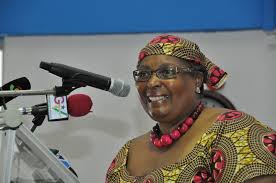
According to the Ghana Cultural Forum’s mission statement, “The Ghana Culture Forum (GCF) is a membership-based civil society consultative forum. It is a network of cultural practitioners, activists and organizations united around a common vision of affirming the cultural foundation of development and enhancing the cultural sector.” The GCF’s Funding Scheme is a fund-generation and disbursement scheme administered by the GCF which seeks to promote the active development of the Culture and Heritage of Ghana. Its scope is restricted to facilitating financial support for the activities of the membership of the GCF.
In line with the above, the Forum is inviting proposals from its members for support noting that its Funding Scheme is committed solely to the development and promotion of the best of Ghanaian creativity and heritage under the aegis of the Ghana Culture Forum, and that funds disbursed may be used only in furtherance of cultural projects and activities that go to promote the aims and objectives of a particular artistic domain or cultural institution/community. Also the projects must be time-limited activities that benefit people in Ghana and promote the creativity and heritage in Ghana and must take place mainly in Ghana.
The activities that qualify for support from the G.C.F. Funding Scheme include Creative arts productions and exhibitions, Research and development to promote the culture and heritage of Ghana; Audience Development – activities aimed specifically at meeting the needs of audiences to develop long-term relationships with them (for example: activities which increase the number of people attending and taking part in arts programmes). Other activities are that can attract funding are Public, community and contemporary arts, important one-off, national and community art and cultural events such as conferences, festivals which take place in Ghana and benefit artists, cultural practitioners and the people who take part from across Ghana and beyond; Professional development and skills training; Documentation and preservation of arts and cultural heritage; Publication of literary works (novels, poetry , drama scripts); Development of innovation as well as Initiation of sustainability projects and other related areas.
Without a doubt, this is welcome news for the creative arts and what one can hope for is that real projects receive the grants and that at the end of the day, there will be success stories to share.

